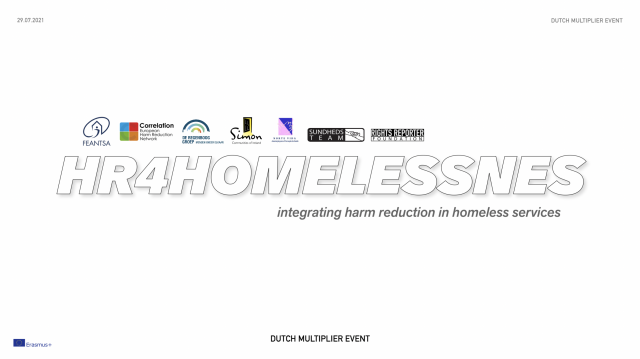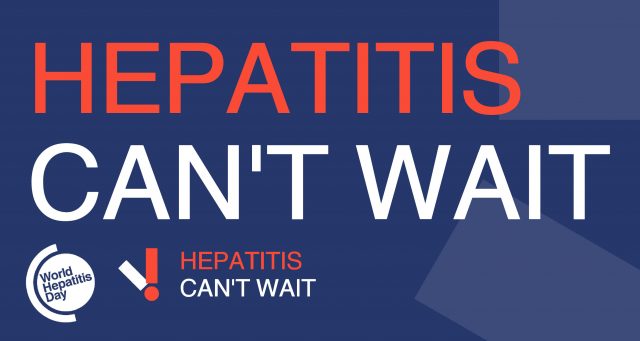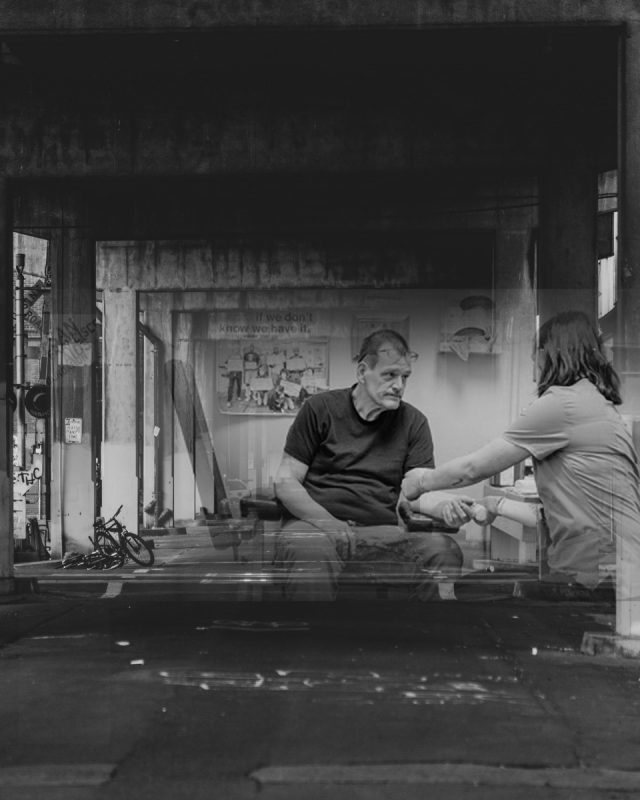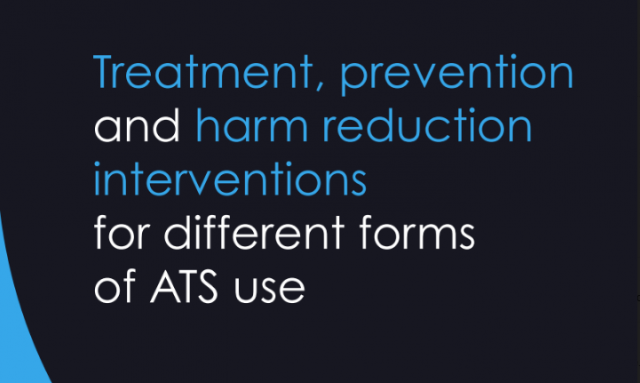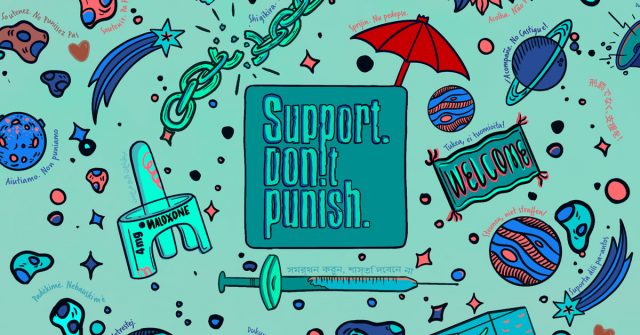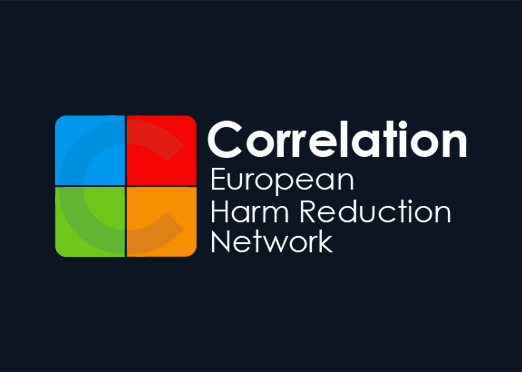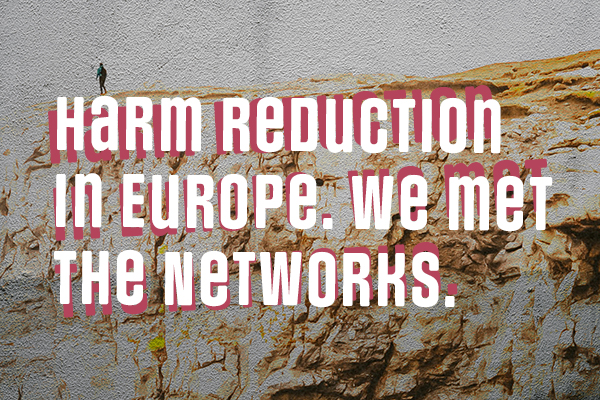On the 29th of July, De Regenboog Groep / C-EHRN hosted the webinar “Improving Harm Reduction Services for People Who use Substances in the situation of Homelessness”. This webinar is part of the Eramus+ project “HR4Homelessness”.
With 40 registered participants, the event brought together professionals working in homelessness and drug use to exchange experiences about their harm reduction programmes, the challenges they face, the successes, and to get acknowledged with the outcomes of the HR4Homeless project.
Roberto Perez Gayo, policy officer at C-EHRN, presented the overall aim and specific objectives of the project and the contribution of the activities and outputs. Specifically, the event offered the participants the possibility of getting acquittanced with two critical project outcomes. On the one hand, attention was given to the Harm Reduction Key Principles and how they can help homeless services improving harm reduction provision for people who use drugs. On the other, to the outcomes of the EU-wide survey on harm reduction service provision that project developed. Ruth Kasper, HR4Homelessness project coordinator, presented data regarding current HR provision for people experiencing homelessness and the synthesis of drug/alcohol use among people in situations of homelessness and their access to support services in the partner countries.
The project and outcomes presentation was followed by three projects that put forward the diversity of approaches to harm reduction and recent development they work to respond to. First, Vivienne Blommendaal and Frank van Milt, caseworkers at the Centre of Expertise Housing First HVO Querido, shared with participants the relationship between Housing First and Harm Reduction models. Both Vivienne and Frank provided insights into how HR works within their project and some of the practical implications for adequate support of people who use drugs in Housing First programmes. Next, Ingrid Bakker – projects officer at MAINline – presented ‘Omgaan met Verward Gedrag”, a recent project that seeks to increase the capacity of low-threshold facilities & their staff to respond to neural diversity. In recent years the Netherlands has experienced a rise in homelessness, while at the same time problems in capacity on shelters and mental health facilities. Already for a while, MAINline was receiving signals from shelters themselves that they were working with people with more complex needs of support – substance dependence, mental health, homelessness, among others -, and that their capacity to respond adequately to it was limited. In response to this situation, “Omgaan met Verward Gedrag” has developed a manual and a training programme to build the capacity of service providers in the field of homelessness. After this, Sonja Groot – De Regenboog / Amsterdam Undeground – presented the community-led projects she works on: a tour guiding company that operates as a community-led cooperative. Amsterdam Undeground functions not only as a labour integration and community building project for and by people who use(d) drugs but also as a platform for advocacy and fighting stigma. Through their own experiences, the guides can give insight into the lives of people who use drugs, people experiencing homelessness or sex workers, among others.
For any further information, please contact Roberto Perez Gayo rpgayo@correlation-net.org

